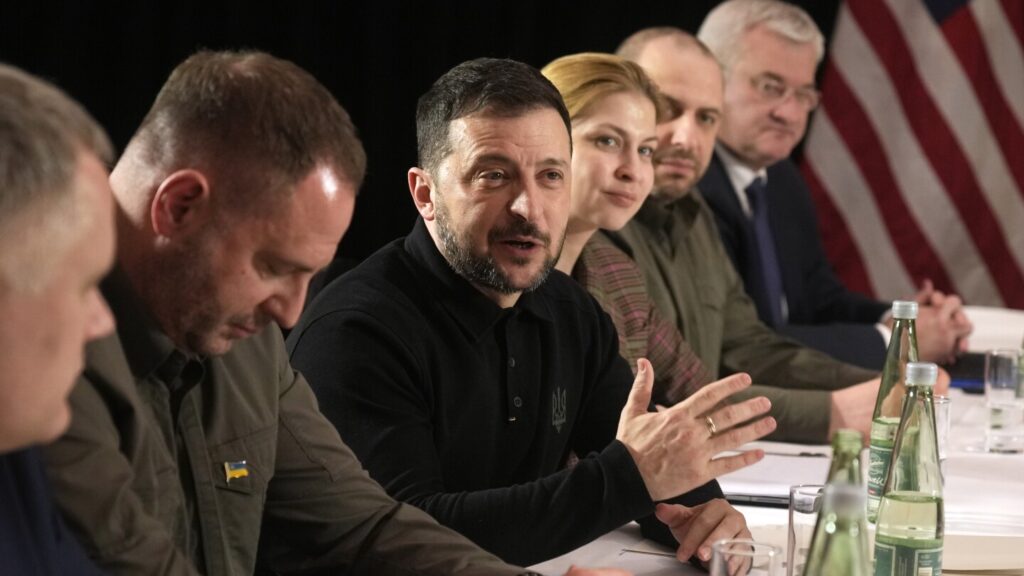Ukrainian President Volodymyr Zelenskyy made a plea to President Trump at the Munich Security Conference, hoping for American leadership in resolving the Russia-Ukraine conflict. Despite Trump’s absence, Zelenskyy emphasized the importance of Trump’s support, praising him as a strong figure who could influence Russian President Putin to end the war. This appeal followed Trump’s recent direct conversation with Putin, signaling a shift in U.S. support for Ukraine and raising concerns about potential territorial concessions. Zelenskyy expressed willingness to meet with Putin only after aligning with Trump, reflecting the intricate diplomatic dance at play.
While some, like German President Frank-Walter Steinmeier, cautioned against simplistic deal-making, others, such as Lithuania’s defense minister, highlighted the need for U.S. involvement and Trump’s perceived creativity in finding solutions. The defense minister stressed the importance of European unity against Russia and the avoidance of internal conflicts. In Warsaw, U.S. Defense Secretary Pete Hegseth underscored Trump’s role in negotiations, aiming for a lasting peace that doesn’t embolden Russia. However, the complexities of the situation were acknowledged, with all parties vying for their own version of success.
As Zelenskyy aptly noted, navigating these challenges will be difficult, but not insurmountable. The dynamic interplay between key players like Trump, Zelenskyy, and Putin sets the stage for high-stakes negotiations with far-reaching implications. Amid differing perspectives and objectives, the quest for a resolution underscores the intricate balancing act required to achieve a satisfactory outcome for all involved parties.

